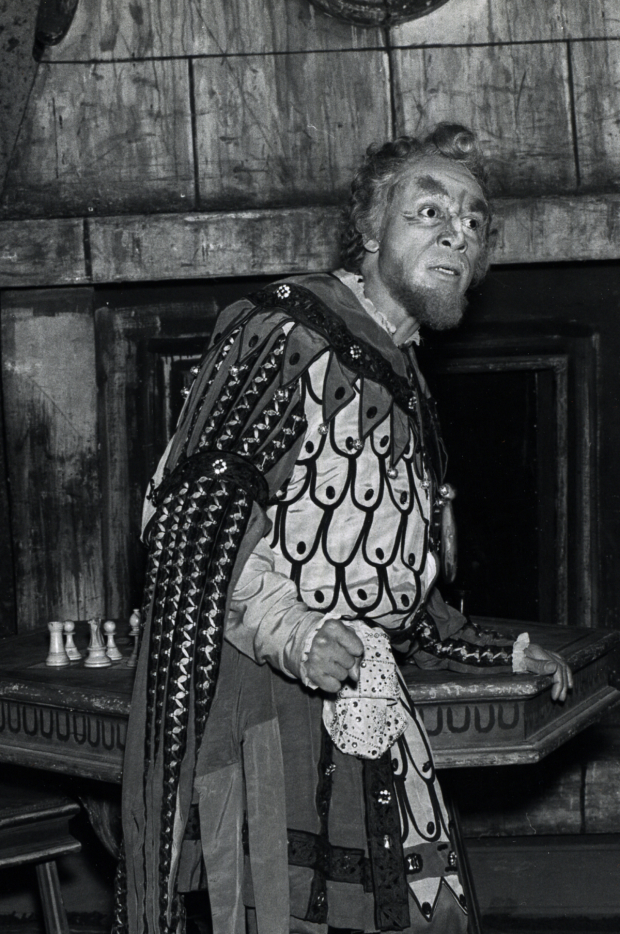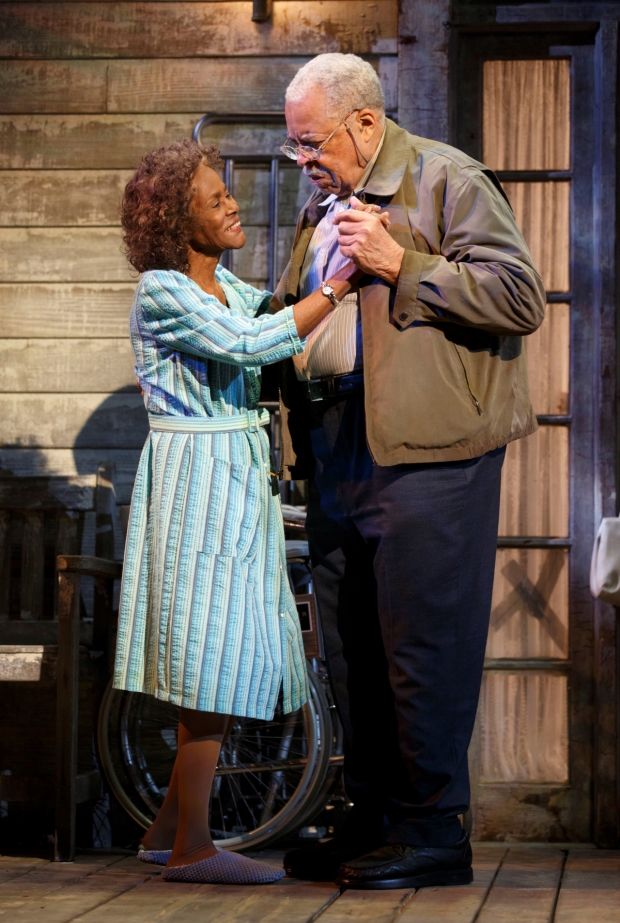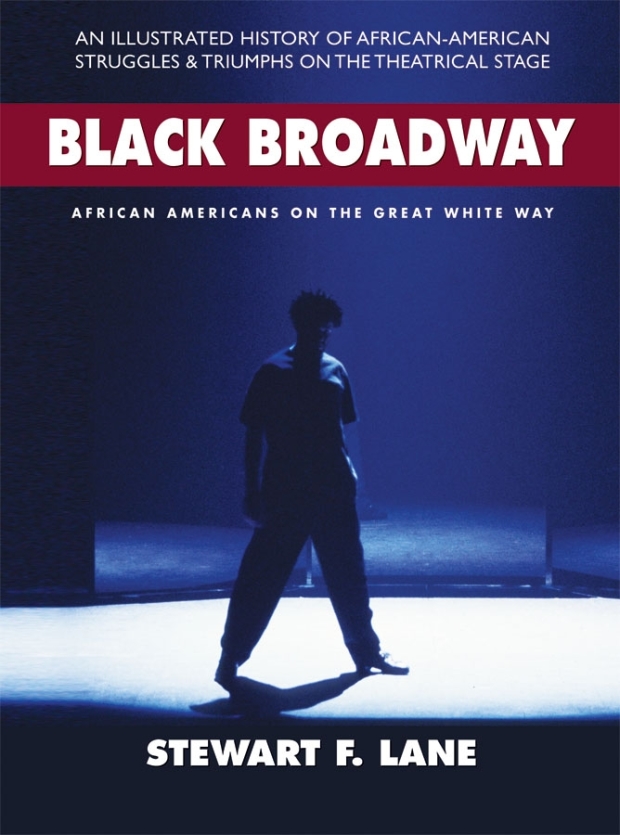Concerning Black Theater Matters
Stewart F. Lane’s ”Black Broadway” mirrors both past headliners and today’s headlines.

(© Metropolitan Opera Archives)
Once, many decades ago, there was an ethnic group that middle Americans conventionally looked down on. Its members were viewed as simple souls, close to the earth and not fully capable of grasping higher ideas. They spoke what was perceived as a comically distorted version of English, often exaggerated into caricature on the stage. Though assumed to be deeply religious and blessed with a natural musicality, they were also considered shiftless and untrustworthy, easy prey for their more violent impulses. Respectable folk felt the need to maintain a discreet distance from them.
Whatever you were thinking, the people I’m referring to are the Irish. The terms I’ve cited above were frequently applied to them, in middle-class parlance, during the waves of immigration that followed the great Irish famine of the early 1840s persisting down to the heyday of the great Irish-American vaudeville and theater stars who dominated our stage from the 1880s onward. These stereotypes were exploited by Irish and Irish-American performers, as well as by many who merely pretended to be Irish, producing a subspecies of minstrelsy in which people sang sentimentally about Cork instead of blacking up their faces with it.
I place this little paradigm at the top of my reflections on the African-American theater of the past century and a half as a reminder to you and to myself that we live in a nation entirely shaped by successive waves of immigrants, and that prejudice is the eternal reflex of the hidebound and unthinking, which may reach out to target any of us under the right conditions. So assumptions of superiority are always best done without.

(© Joan Marcus)
African-Americans hold a distinctive place in the unmelting pot of American history: Their initial migration here, unlike most others, was not voluntary. Other ethnic groups hold bitter memories of the conditions that drove them from their various homelands, plus the specific traumatic indignities visited on them here. For African-Americans, the traumatic indignity has been continuous, from the first slave ships to the protest-rousing outrages of the present day. Yet African-Americans somehow — almost inexplicably under these circumstances — have largely clung to the classic American faith in progress, self-improvement, and the Constitutional principle of equal justice.
Stewart F. Lane’s Black Broadway (Square One Publishers), a giant coffee-table book that appeared last year, chronicles the long, painful saga of repeated efforts and renewed hopes — in the face of neglect, condescension, stereotyping, and outright hostility — that is the history of the African-American presence in the New York theater. As with the overall history of blacks in America, the cultural contribution has been gigantic, the momentary triumphs numerous, and the negativity from some white quarters harrowingly persistent. One thing at least the theater has gotten right, toward which the larger society is still stumbling: We have learned, on the whole, to stop crabbing about the ongoing presence in our artistic lives of a group of people who were always there and whose acceptance on an equal basis should have been established at least a century ago, if not earlier.
The crabbing was ridiculous in the first instance, as Lane’s accumulation of evidence splendidly displays. America’s first genuinely notable black actor, Ira Aldridge, felt compelled to turn his back on us and depart for England, where his gifts were at least partially appreciated and the barriers against him were fewer. The history of African-American theater artists since Aldridge’s time, as Lane chronicles it, is a tale of steadily increasing influence and abilities ever more widely acknowledged. But when read between the lines of Lane’s discreet prose, and behind the dazzle of the powerful cascade of illustrations he has assembled, it is also the tale of a people’s unending struggle to be heard, to be considered, to be remembered, to have their say as a part of the American nation — a part whose distinctive history holds in a sense the key to all the rest of what we understand by "America."

Some past aspects of the struggle are hard to imagine nowadays, when the color-blind casting of stars has become commonplace on Broadway, as with the recent forays of Cicely Tyson and James Earl Jones in plays like The Gin Game, You Can’t Take It With You, and The Trip to Bountiful. Before 1960, such casting in the commercial theater would have been either unimaginable or construed as an act of great political daring. It was so construed in 1964, when Diana Sands played opposite Alan Alda in a giddy comedy called The Owl and the Pussycat. In one of the notable earlier instances, in 1946, when Canada Lee played Bosola to Elisabeth Bergner’s Duchess of Malfi, he had performed the role in whiteface.
Even harder to imagine today is how blacks were barred from an important venue that lies outside Lane’s purview: the Metropolitan Opera. Once Marian Anderson had broken through the barrier, singing Ulrica in Verdi’s Ballo in Maschera on January 7, 1955, the floodgates opened. Two weeks later, baritone Robert McFerrin (father of the pop singer Bobby McFerrin) made his Met debut, and the next year, coloratura soprano Mattiwilda Dobbs — inaugurating a long, glorious procession of African-American singers who have immeasurably enhanced the operagoing experience. New York City Opera — soon to be revived — had beaten the Met to this vocal treasure trove a decade earlier, not only putting singers like Camilla Williams, McFerrin, and William Warfield on its roster but producing, as the first of its many world premieres, an African-American work, William Grant Still’s Troubled Island, its libretto drafted by Harlem’s reigning poet, Langston Hughes.
But progress did not make contention vanish overnight. A bitter struggle leaves many travails in its wake, and African-Americans’ struggle for artistic equality has been no exception. I’ll look into some of the contentions that still resonate next week.
To read part II of this "Thinking About Theater" column, click here.
Michael Feingold has twice won the George Jean Nathan Award for Dramatic Criticism, most recently in 2015 for his "Thinking About Theater" columns on TheaterMania, and has twice been a finalist for the Pulitzer Prize in Criticism. He serves as chairman of the Obie Awards and has also worked as a playwright, translator, and dramaturg.









